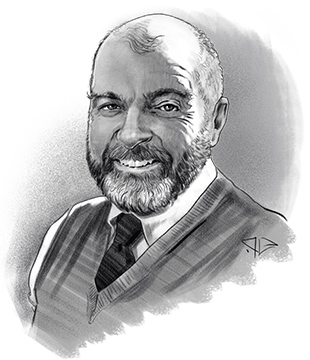- Feb 5, 2002
- 183,580
- 66,805
- Country
- United States
- Gender
- Female
- Faith
- Catholic
- Marital Status
- Married
- Politics
- US-Others
According to Washington auxiliary bishop Roy Campbell, Catholics should stand up for Diversity, Equity, and Inclusion—DEI—because DEI also means “God” (as in, Dei).
That insulting association of the Divine Name with a divisive political social policy appeared in an essay the USCCB accidentally published on its website in recent days. It has since been taken down. According to The Pillar, the USCCB has not yet officially sanctioned the essay. It “is a draft of a personal reflection from Bishop Campbell that is yet to be discussed and given to a definitive publication plan,” spokesperson Chieko Noguchi said. The essence of the essay was more or less contained in the same bishop’s homily during 2025 Black History Month. That homily occurred within a month of Donald Trump’s inauguration, an administration the bishop accused of “want[ing] to erase Diversity, Equity, and Inclusion from the American conscience.”
There are two big problems with the essay.
First, DEI is arguably fundamentally incompatible with Catholic thought. In practice, DEI treats racism not as intrinsically evil, but only sometimes evil, depending on who is being discriminated against. Justice Clarence Thomas already highlighted this problem in his concurrence in Students for Fair Admissions v. Harvard:Colorblindness—the ignoring of race as a criterion for decisions—has morphed into color sensitivity, resulting in so-called “good discrimination” and “bad discrimination.” Reverse discrimination is nonetheless discrimination.
DEI also victimizes innocent persons today by denying them opportunities in the name of earlier, historical victims, transferring those opportunities to modern beneficiaries whose only commonality with those past victims is race.
Bishop Campbell’s defense of DEI policies clings to the stated theoretical foundations of Diversity, Equity, and Inclusion: They encourage more seats at the table and incorporation of different viewpoints and life experiences. But in sticking to those superficial claims, Campbell ignores the case DEI opponents make about its practical consequences for real persons here and now in the name of historical victims from times past. The bishop may think that redress of past wrongs is a matter of social justice. But it is at least just as arguably a matter of social justice that concrete persons today should not endure consequences for wrongs done by other persons in the past, in which they had no part. How is that not trans-historical racial collective guilt? Catholic teaching is antithetical to the perpetuation of grievance. Old wounds should not become new injustices.
Continued below.
That insulting association of the Divine Name with a divisive political social policy appeared in an essay the USCCB accidentally published on its website in recent days. It has since been taken down. According to The Pillar, the USCCB has not yet officially sanctioned the essay. It “is a draft of a personal reflection from Bishop Campbell that is yet to be discussed and given to a definitive publication plan,” spokesperson Chieko Noguchi said. The essence of the essay was more or less contained in the same bishop’s homily during 2025 Black History Month. That homily occurred within a month of Donald Trump’s inauguration, an administration the bishop accused of “want[ing] to erase Diversity, Equity, and Inclusion from the American conscience.”
There are two big problems with the essay.
First, DEI is arguably fundamentally incompatible with Catholic thought. In practice, DEI treats racism not as intrinsically evil, but only sometimes evil, depending on who is being discriminated against. Justice Clarence Thomas already highlighted this problem in his concurrence in Students for Fair Admissions v. Harvard:Colorblindness—the ignoring of race as a criterion for decisions—has morphed into color sensitivity, resulting in so-called “good discrimination” and “bad discrimination.” Reverse discrimination is nonetheless discrimination.
DEI also victimizes innocent persons today by denying them opportunities in the name of earlier, historical victims, transferring those opportunities to modern beneficiaries whose only commonality with those past victims is race.
Bishop Campbell’s defense of DEI policies clings to the stated theoretical foundations of Diversity, Equity, and Inclusion: They encourage more seats at the table and incorporation of different viewpoints and life experiences. But in sticking to those superficial claims, Campbell ignores the case DEI opponents make about its practical consequences for real persons here and now in the name of historical victims from times past. The bishop may think that redress of past wrongs is a matter of social justice. But it is at least just as arguably a matter of social justice that concrete persons today should not endure consequences for wrongs done by other persons in the past, in which they had no part. How is that not trans-historical racial collective guilt? Catholic teaching is antithetical to the perpetuation of grievance. Old wounds should not become new injustices.
Continued below.


